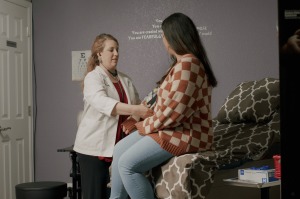Thousands of Breast Cancer Patients Don't Have to Do Chemo, According to New Study
Treatment of breast cancer used to mean aggressive chemotherapy, with its attendant host of side effects. A set of new findings have shown that thousands of early cases need not resort to chemo treatments to have the best chance at a good outcome.
For most breast cancer patients today, it's standard practice to include endocrine therapy and chemotherapy, especially for younger women who can cope better with the usually uncomfortable side effects of the treatments, as The Guardian pointed out.
Even after decades of development, chemotherapy patients are still often subjected to nausea and vomiting, fatigue, a weaker immune system and hair loss. In a few cases, the treatment could even lead to leukemia, as it could damage the bone marrow which affects the production of red blood cells, white blood cells, and platelets.
It turns out that there are many breast cancer patients that do not have to go through all those and still have a great prognosis for their recovery.
"Practically speaking, this means that thousands of women will be able to avoid chemotherapy, with all of its side effects, while still achieving excellent long-term outcomes," Dr Harold Burstein, an associate professor at Harvard Medical School, said about the landmark study that focuses on customizing breast cancer treatments for each patient's case.
The study looked at 10,000 women aged 18 to 75, all of which have a form of HER2-negative and axillary node-negative cancer similar to about half of all breast cancer cases. They were then assigned a score from 0 to 100, with a lower score corresponding to a lower chance that cancer will return within ten years.
The researchers have already established that patients with a score of ten or lower would not benefit from chemotherapy, compared to those that are at a risk score of 26 or above. That already excluded around 17 percent of patients from having to undergo the treatment.
What the new study did establish on top of that, however, is that women over 50 years of age who have a score of 25 or lower would not gain much from chemotherapy as well. It's the same case for women younger than 50 who scored 15 or lower.
"Our study shows that chemotherapy may be avoided in about 70% of these women when its use is guided by the test, thus limiting chemotherapy to the 30% who we can predict will benefit from it," Dr. Joseph Sparano, an associate director of clinical research at Albert Einstein Cancer Center and the lead author of the study, said about the results.
It was a result that cancer doctors have been wanting to learn about for a long time now, according to Dr. Alistair Ring, a consultant at the Royal Marsden Hospital in London.
"Oncologists have been waiting for these results, it will affect practice on Monday morning. It's a fundamental change in the way we look after women with early breast cancer," he said.




























